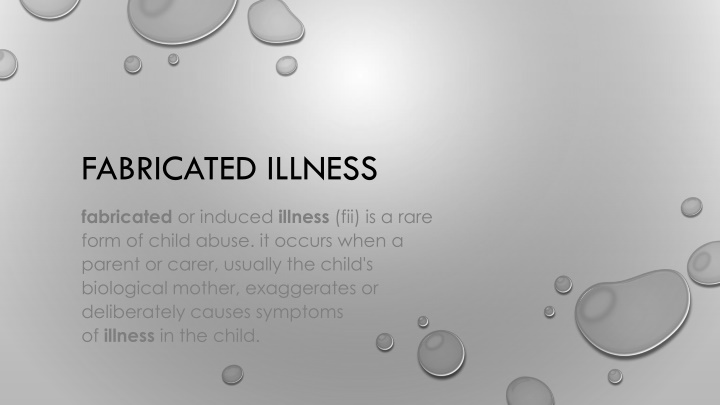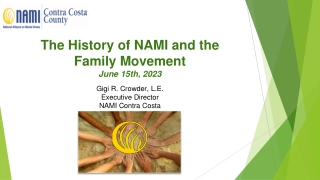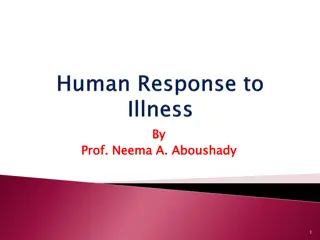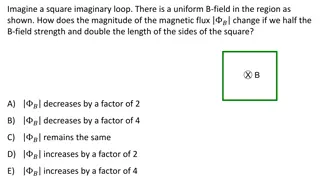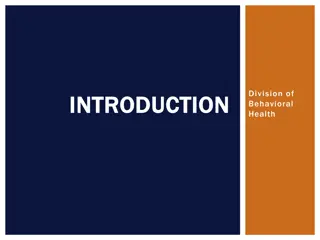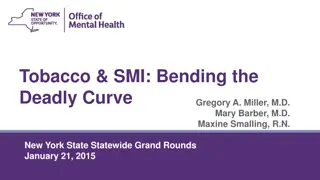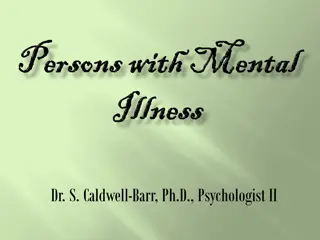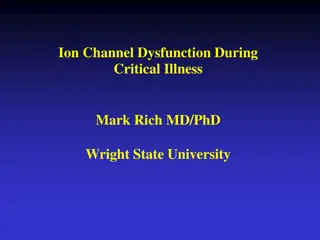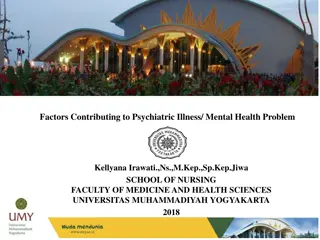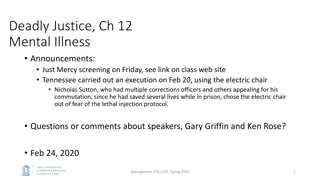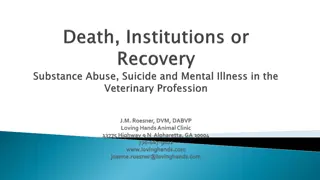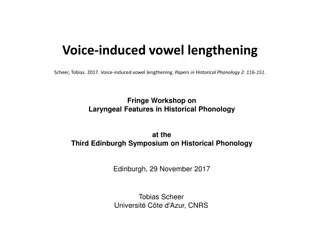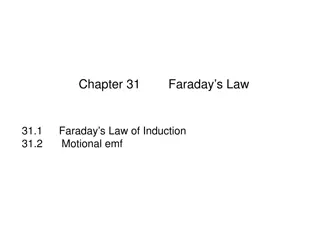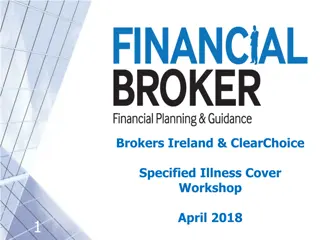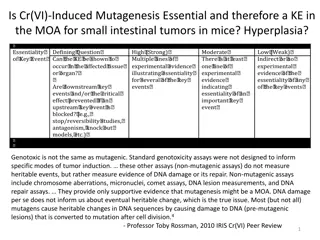Fabricated or Induced Illness (FII)
Fabricated or induced illness (FII) is a rare form of child abuse where a parent exaggerates or causes symptoms of illness in the child. It results in emotional and physical abuse, with symptoms unexplained by known pathology. Learn to recognize warning signs and understand the complex nature of this form of abuse to protect vulnerable children.
Download Presentation

Please find below an Image/Link to download the presentation.
The content on the website is provided AS IS for your information and personal use only. It may not be sold, licensed, or shared on other websites without obtaining consent from the author.If you encounter any issues during the download, it is possible that the publisher has removed the file from their server.
You are allowed to download the files provided on this website for personal or commercial use, subject to the condition that they are used lawfully. All files are the property of their respective owners.
The content on the website is provided AS IS for your information and personal use only. It may not be sold, licensed, or shared on other websites without obtaining consent from the author.
E N D
Presentation Transcript
FABRICATED ILLNESS fabricated or induced illness (fii) is a rare form of child abuse. it occurs when a parent or carer, usually the child's biological mother, exaggerates or deliberately causes symptoms of illness in the child.
NEW DEFINITIONS MEDICALLY UNEXPLAINED SYMPTOMS (MUS) FABRICATED OR INDUCED ILLNESS (FII) PERPLEXING PRESENTATIONS (PP) fii is a clinical situation in which a child is, or is very likely to be, harmed due to parent(s ) behaviour and action, carried out in order to convince doctors that the child s state of physical and/or mental health or neurodevelopment is impaired (or more impaired than is actually the case). fii results in emotional and physical abuse and neglect including iatrogenic harm. the child s symptoms, of which the child complains, and which are genuinely experienced, are not fully explained by any known pathology but with likely underlying factors in the child (usually of a psychosocial nature), and the parents acknowledge this to be the case. the health professionals and parents work collaboratively to achieve evidence-based therapeutic work in the best interests of the child or young person presence of alerting signs when the actual state of the child s physical/ mental health is not yet clear but there is no perceived risk of immediate serious harm to the child s physical health or life
A clinician may suspect fabricated or induced illness if, after carrying out examinations and tests, there appears to be no explanation for the child's symptoms (for more information, you can read the Royal College of Paediatrics and Child Health guidance about - perplexing presentations and FII They should also look out for one or more of the following warning signs: symptoms may only appear when the parent or carer is present the only person claiming to notice symptoms is the parent or carer the affected child has an inexplicably poor response to medication or other treatment if one particular health problem is resolved, the parent or carer may then begin reporting a new set of symptoms the child's alleged symptoms don't seem plausible for example, a child who has supposedly lost a lot of blood but doesn't become unwell the parent or carer has a history of frequently changing GPs or visiting different hospitals for treatment, particularly if their views about the child's treatment are challenged by medical staff
the child's daily activities are being limited far beyond what you would usually expect as a result of having a certain condition for example, they never go to school or have to wear leg braces even though they can walk properly the parent or carer has good medical knowledge or a medical background the parent or carer doesn't seem too worried about the child's health, despite being very attentive the parent or carer develops close and friendly relationships with healthcare staff, but may become abusive or argumentative if their own views about what's wrong with the child are challenged one parent (commonly the father) has little or no involvement in the care of the child the parent or carer encourages medical staff to perform often painful tests and procedures on the child (tests that most parents would only agree to if they were persuaded that it was absolutely necessary)
HARM TO THE CHILD child s health and experience of healthcare the child undergoes repeated (unnecessary) medical appointments, examinations, investigations, procedures & treatments, which are often experienced by the child as physically and psychologically uncomfortable or distressing effects on child s development and daily life the child has limited / interrupted school attendance and education the child s normal daily life activities are limited genuine illness may be overlooked by doctors due to repeated presentations the child assumes a sick role (e.g. with the use of unnecessary aids, such as wheelchairs) illness may be induced by the parent (e.g. poisoning, suffocation, withholding food or medication) potentially or actually threatening the child s health or life. the child is socially isolated.
HARM TO THE CHILD child s psychological and health-related wellbeing there may be active collusion with the parent s illness deception the child may be confused or very anxious about their state of health the child may be silently trapped in falsification of illness the child may develop a false self-view of being sick and vulnerable and adolescents may actively embrace this view and then may become the main driver of erroneous beliefs about their own sickness. increasingly young people caught up in sickness roles are themselves obtaining information from social media and from their own peer group which encourage each other to remain ill the child may later develop one of a number of psychiatric disorders and psychosocial difficulties.
HOW SEVERE? severity of fii can be considered in two ways: a) severity of the parent s actions, b) severity of the harm to the child. a) severity of the parent s actions this can be placed on a continuum of increasing severity which ranges from anxiety and belief-related erroneous reports, to deception by fabricating false reports, to interfering with samples through to illness induction. however, there is no evidence about the likelihood or factors associated with a parent moving from one point on this continuum to another. b) severity of harm to the child the different aspects of harm to the child may coexist. severity of the harm to the child needs to be assessed according to both the intensity of each aspect of the harm, and by the cumulative effect of all the aspects. m
PATTERNS AND LEVELS OF ABUSE The patterns of abuse found in cases of FII can be categorised in some models . These are ranked as follows, from least severe to most severe with examples: least severe - exaggerating or fabricating symptoms and manipulating test results to suggest the presence of an illness intentionally withholding nutrients from the child or interfering with nutritional intake inducing symptoms by means other than poisoning or smothering, such as using chemicals to irritate their skin poisoning the child with a substance of low toxicity for example, using laxatives to induce diarrhoea poisoning the child with a poison of high toxicity for example, using insulin to lower a child's blood sugar level most severe -deliberately smothering the child to induce unconsciousness
OTHER SIGNS parents or carers lying about their child's symptoms parents or carers deliberately contaminating or manipulating clinical tests to fake evidence of illness for example, by adding blood or glucose to urine samples, placing their blood on the child's clothing to suggest unusual bleeding, or heating thermometers to suggest the presence of a fever poisoning their child with unsuitable and non-prescribed medicine infecting their child's wounds or injecting the child with dirt or faeces (stools) inducing unconsciousness by suffocating their child not treating or mistreating genuine conditions so they get worse withholding food, resulting in the child failing to develop physically and mentally at the expected rate
WHY? CAUSAL FACTORS. ROLE PLAYING PERSONALITY DISORDER Personality disorders are a type of mental health problem, where a person has a distorted pattern of thoughts and beliefs about themselves and others. These distorted thoughts and beliefs may cause them to behave in ways that most people would regard as disturbed and abnormal. This is a complex one- the mother adopts the role of being concerned and caring but inn reality is passing on the care for her child to medical staff A FORM OF ESCAPISM It detracts from the mother s own issues but gives her access to doctors/medical staff and a central role. Keeps her own issues at bay
CAUSAL FACTORS PREVIOUS MEDICAL HISTORY One or both parents may have a history of self- harm or drug or alcohol misuse. CHILD ABUSE One study found that almost half of mothers who were known to have fabricated or induced illness in their child were victims of physical and sexual abuse during their own childhood. UNKNOWN No known /diagnosable cause Some case studies also revealed that the mother may have experienced the death of another child, or a difficult pregnancy
SAFEGUARDING Safeguarding considerations are key:- - Following working together guidance - EPO? - Health and education rehabilitation plan with or without social care involvement - Referral for social services / children s services interventions - Multi agency approach - two paediatricians review evidence , patterns etc .
OTHER INFORMATION fabricated or induced illness by carers does exist. However, the personality disorder msbp does not currently exist as a formally recognised mental disorder for the purposes of clinical diagnosis. THOUGHTS How may a child present if they are placed within your home/service? What could you anticipate in terms of risks/ responses/ behaviours? fabricated or induced illness by carers is relatively rare but this should not undermine or minimise its serious nature or the need for practitioners to be able to identify when parents or carers are fabricating or inducing illness in children. DISCUSS
